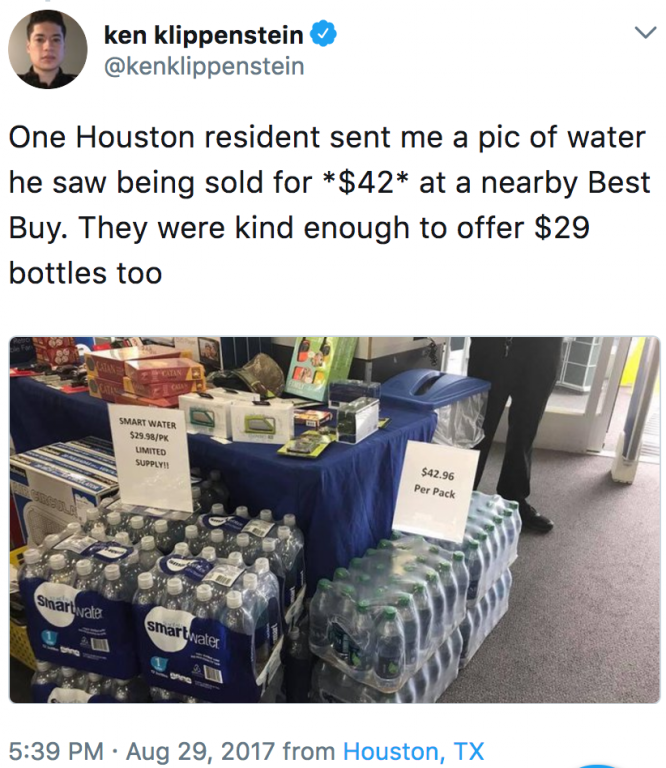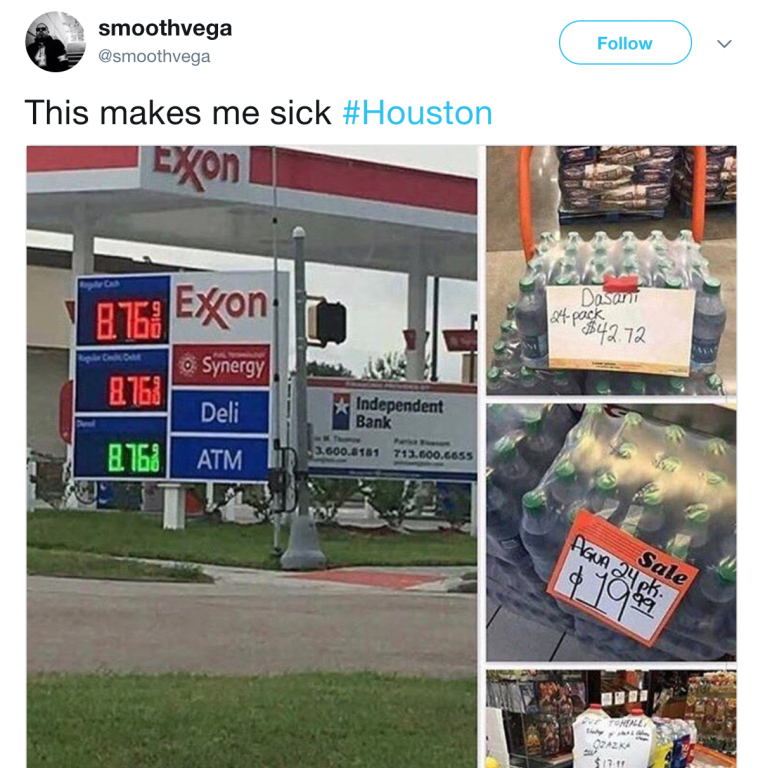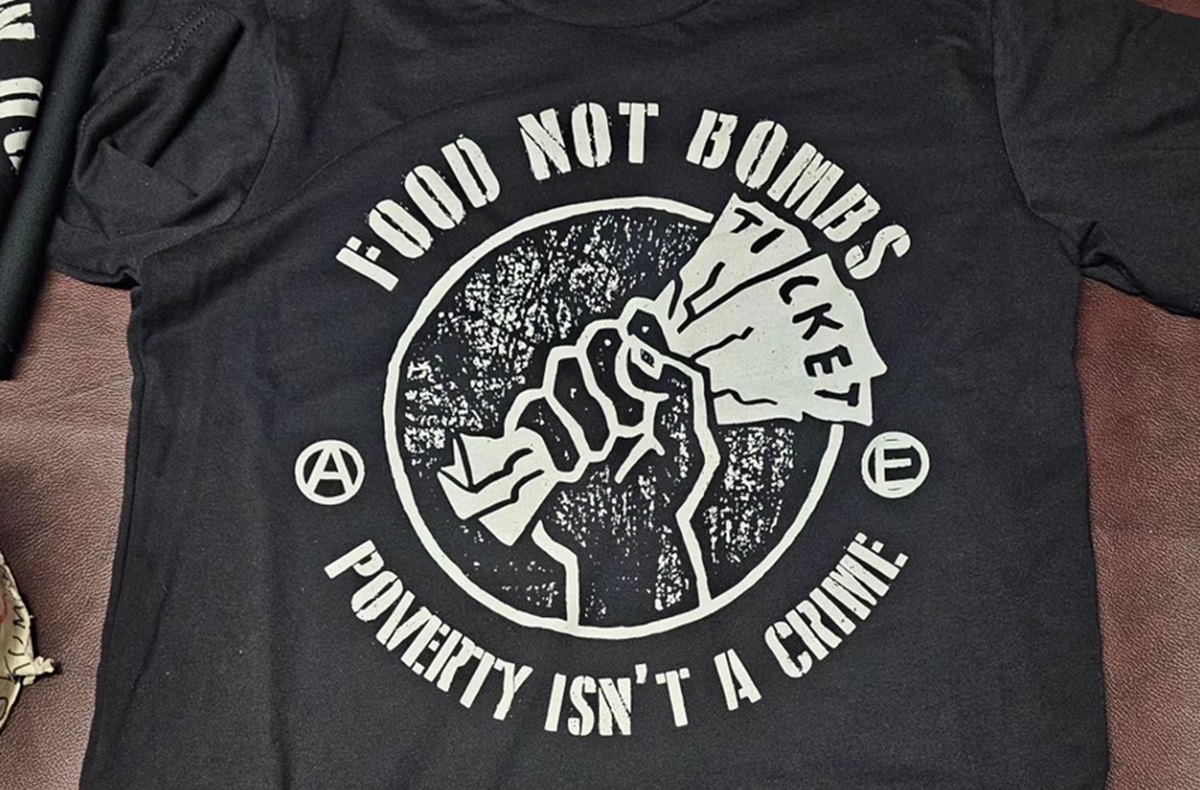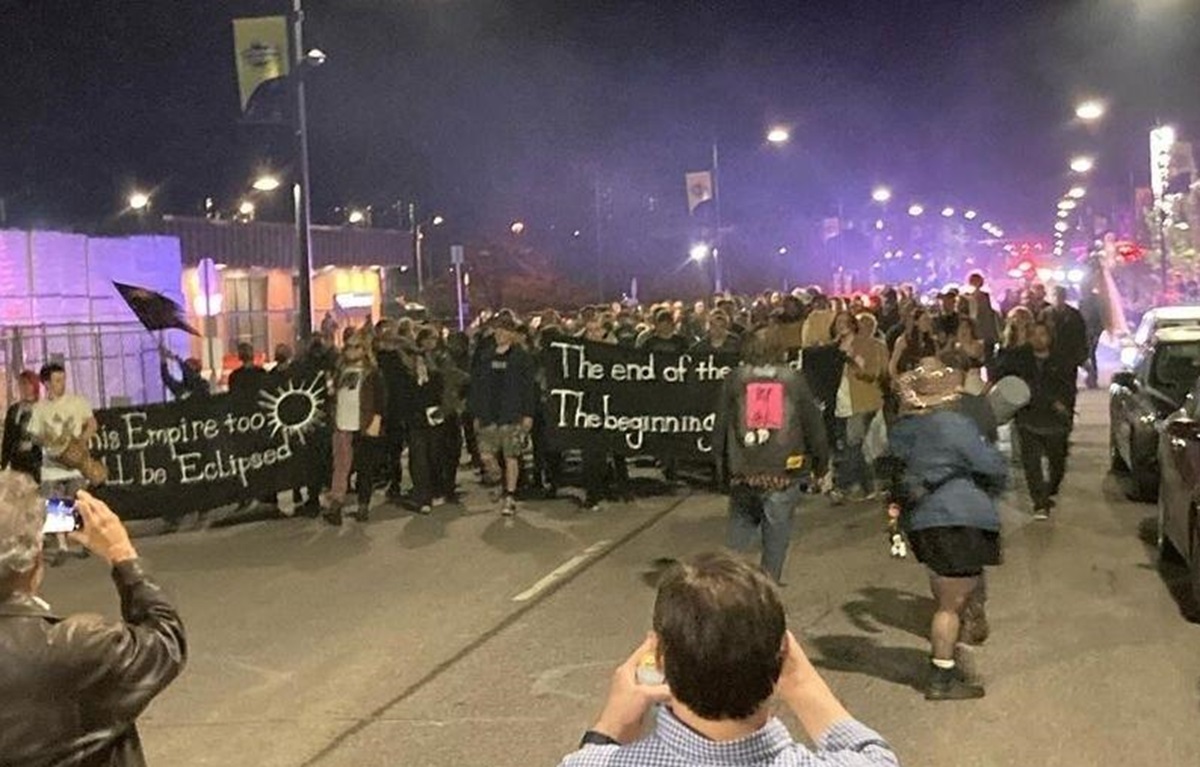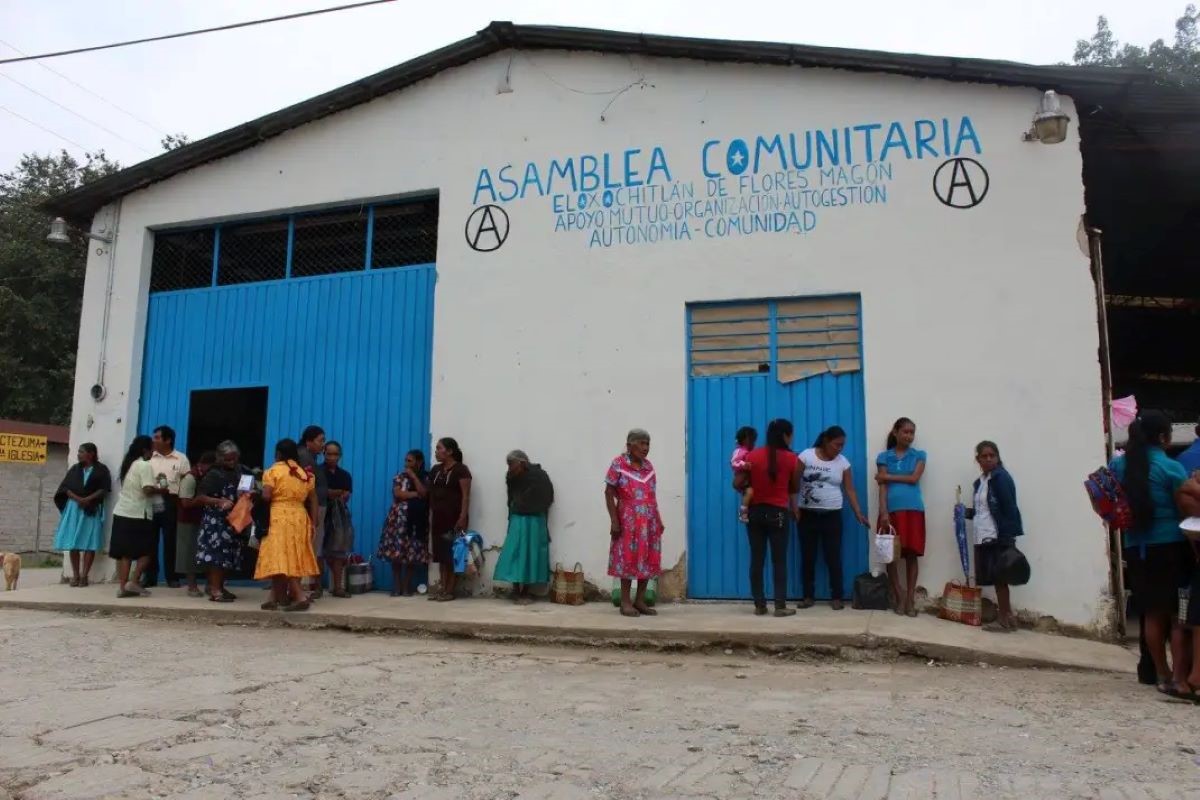Filed under: Capitalism, Critique, Featured, US
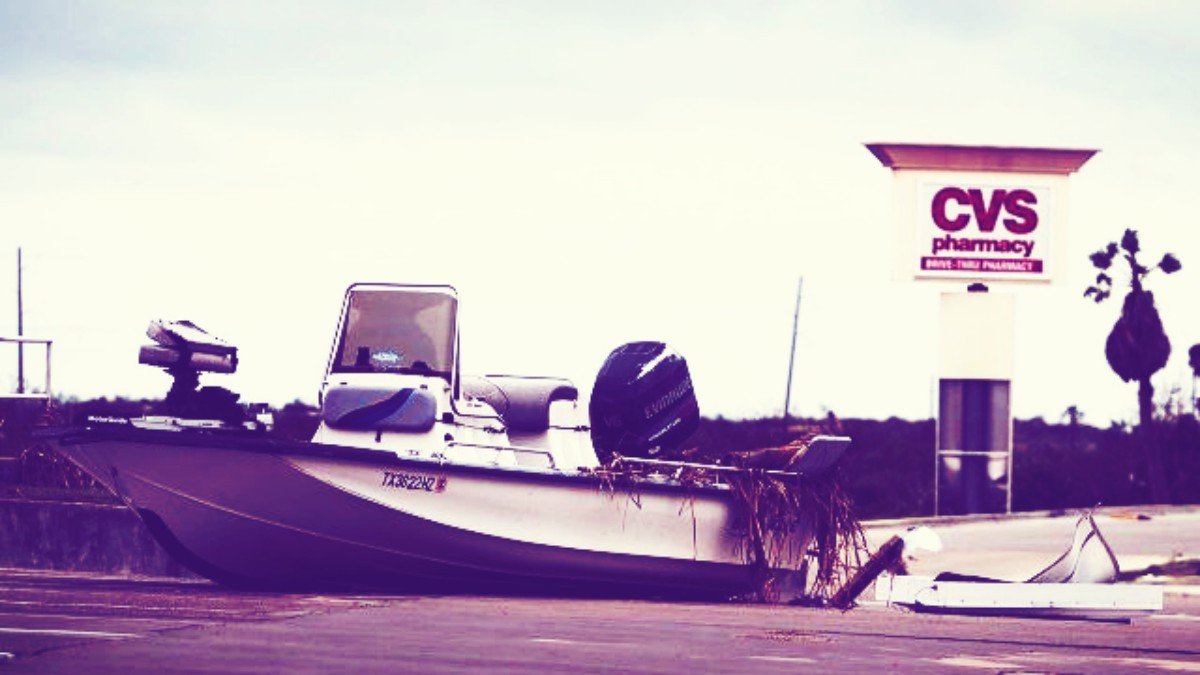
Looting is a rational response to disaster situations and price gouging. Liberals would prefer people to dehydrate, starve, or drown, while food rots underwater.
1. Price gouging and hoarding by capitalists goes unpunished.
As Hurricane Harvey has devastated Texas, Best Buy capitalized on the devastation to sell $42 packs of water amidst hundreds of others of cases of price gouging.
Houston’s local state has responded to this not by requisitioning water from Best Buy and other retailers, but by enforcing an indefinite curfew between midnight and 5 AM to prevent looting.
The District Attorney in Harris County issued a statement last night stating that not only had 14 people already been arrested for looting, but that they would have additional punitive sentencing – including life sentences – under a Texas law allowing for harsher penalties during a crisis.

Meanwhile residents at a nursing home were only airlifted out after a photo of them up to their waists in water went viral. These responses show the liberal state’s insistence on enforcing property relations in the face of all basic common sense and regardless of the cost to human life
2. Looting is survival.
In an area devastated by floods, people are fleeing flooded homes, rescue support and shelters are inadequately provisioned. Joel Olsteen’s Lakewood mega-church in Houston was opened as a temporary shelter only after massive public outcry following an announcement it was going to remain locked.
Stores are the only source of food and water, and it’s a choice between directly appropriating goods and death in the most extreme situations. Despite this, Tom Llamas, a journalist from ABC covering the floods, reported people entering an abandoned supermarket to police. 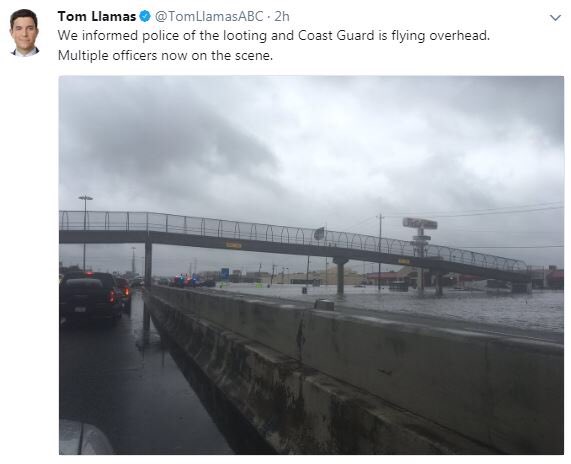
3. The people getting arrested for distributing commodities for free are the same one losing their jobs as stores close.
Even if people fleeing flood water wanted to buy food and water, how are they supposed to do so when the stores themselves are closed – are staff expected to keep working and taking money in a meter of water? Of course Julie Turkevitz from the New York Times thinks that’s a great idea:
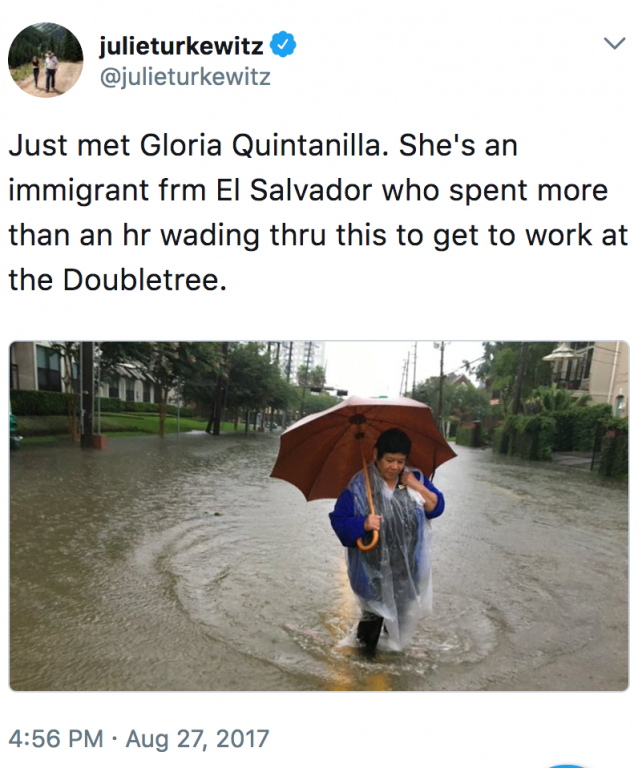
4. Floods aren’t the only time that commodity relations lead to starvation.
The breakdown of property relations in disaster situations mirrors their irrationality in daily life. Famines are not due to lack of food, but due to lack of money. More than 15 million (over 10%) households in the US are food insecure 1, food deserts and other issues with access to fresh food mean that 85% of Americans have some kind of vitamin deficiency.
5. Looting and other action against price gouging also has a long and rich history in the class struggle.
Food riots were a regular occurrence during the American revolution.
On July 22nd 1918, Fisherman’s wives began a national wave of rice riots and strike action when they attempted to prevent the export of grain in Toyama, Japan. In the ’40s, Japanese workers seized factories and mines to run them directly to produce basic necessities in the face of hoarding by corporations and massive food shortages.
In ’70s Italy, workers acted collectively to force transport and electricity price reductions.
Looting is not only normalised during natural disasters but during urban insurrections such as LA 1992 and Ferguson 2014.


